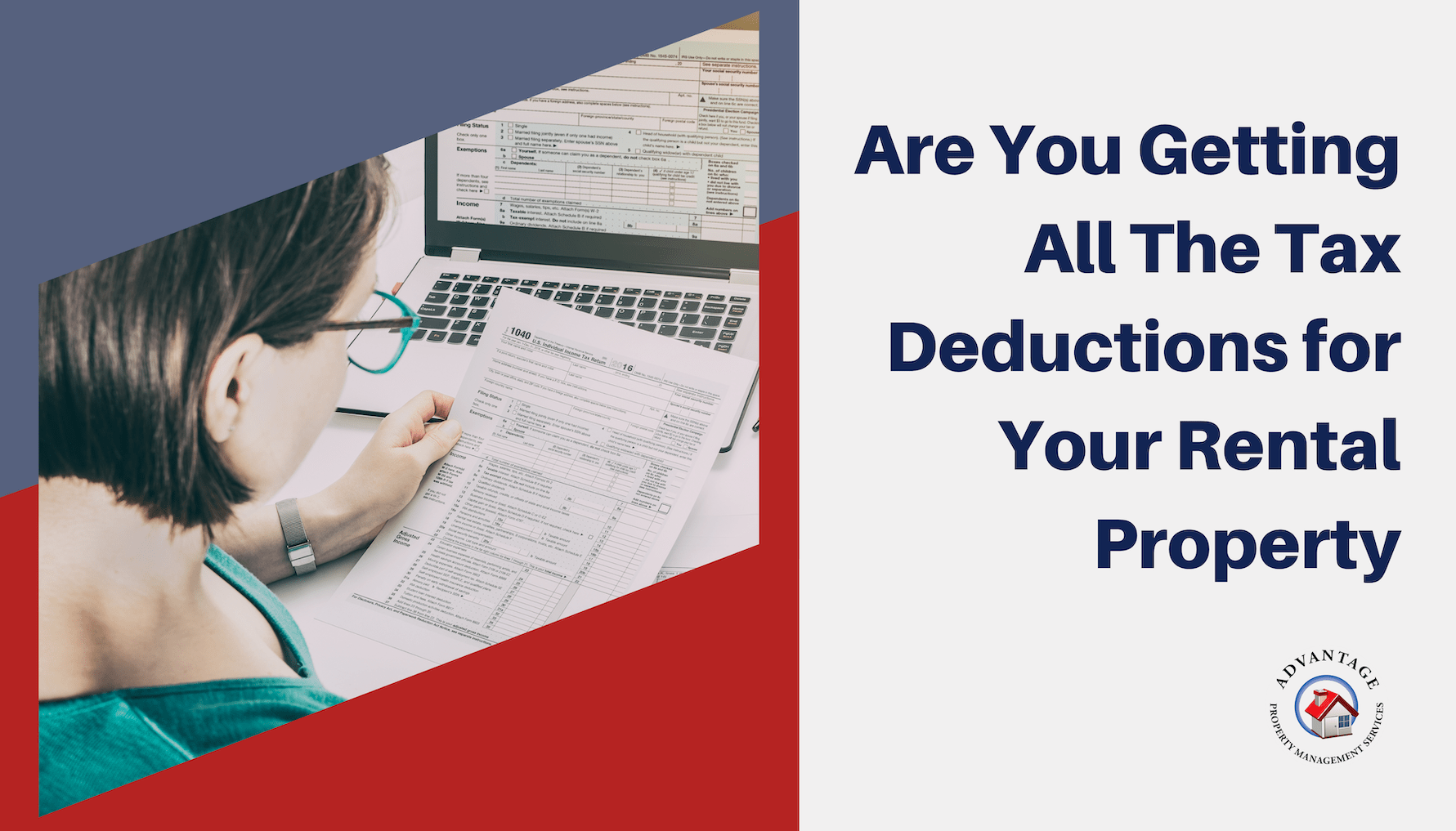Owning rental property in California is popular for many reasons, including the number of tax exemptions available. Every year, real estate investors shortchange themselves on their tax returns because they do not claim their rightful tax exemptions. This blog will outline several deductions available to Pleasanton rental property owners. Keep in mind that tax laws can change quickly, and you should always check with your financial advisor before assuming you can take a deduction.Mortgage InterestThe Internal Revenue Service (IRS) does not allow a tax deduction for the costs associated with obtaining a mortgage nor the principal payments for your Tri-Valley home. However, you can claim all interest you pay on the mortgage throughout the year. Your lender should send you a Form 1098 listing mortgage interest paid by January 31 of next year. The Franchise Tax Board (FTB) in California also permits mortgage interest deductions for your California rental property.Maintenance and RepairsYou can deduct the expenses associated with routine maintenance and minor repairs of your Pleasanton rental property, such as purchasing a vacuum cleaner for the hallway or repairing a handrail. If you need to make major repairs or purchase new equipment for installation, the IRS considers that a capital improvement. Replacing the rental property’s roof is just one example. With capital improvements, you need to spread the cost of the equipment over several years to claim depreciation.Keep in mind that you cannot deduct your own labor. If you complete repairs yourself, the time spent is not tax deductible. If you pay a contractor then the expense is deductible.DepreciationThe IRS provides guidelines when it comes to the depreciation of real estate. Most real estate investors who buy California residential rental properties can treat these as having a useful life of 27.5 years. In other words, you can divide your cost basis in the property by 27.5 to determine your annual depreciation "expense." Each year you can deduct 3.636% (100% / 27.5 years) of the rental property’s cost basis from your annual income to reduce the amount of income subject to tax. Keep in mind that the value of the land or lot doesn’t wear out, so it can’t be depreciated.Real estate depreciation is an important tool for rental property owners. It allows you to deduct the cost from your taxes of buying and improving your Tri-Valley property over its useful life, and thus lowers your taxable income in the process. Professional Property Management FeesProperty management fees for your Pleasanton rental property are tax-deductible when you hire a professional management company. When a property owner hires a management company, the burden and headache of tracking all the details will be handled by the property management company.Other Common ExpensesThe IRS allows rental property owners to deduct most expenses associated with the following:
- Insurance
- Lawn care
- Losses stemming from theft, fire, severe weather, or another type of casualty
- Taxes from previous year
- Tax preparation fees
Be sure to keep receipts for services rendered or insurance claims from any losses you sustain during the year.Travel ExpensesYou can deduct 56 cents per mile for tax year 2021 for vehicle expenses related to driving to maintain your Pleasanton rental property or collect rent. You just need to be careful to classify your travel expenses correctly. For example, any mileage you accumulate to complete improvements on your property count as an expense that you must depreciate over time. People sometimes try to take advantage of the travel expense deduction by looking at an investment or two while they are on vacation and then writing off all miles driven on the trip as a business expense. This greatly increases the chances that the IRS will audit your tax return. If you do travel to look at potential properties to purchase, you must maintain detailed documentation to allow you to defend the exemption.Tenant Screening and Legal FormsYou could deduct the following expenses from your federal income tax return if you paid them and not your tenants:
- Credit reports
- Criminal background checks
- Employment and income verifications
- Eviction history reports
- Identity verifications
Most states allow you to pass some or all these costs to your tenant, which would obviously save you more money than the tax exemption. If you had to purchase state-specific lease agreements, eviction notices, or property management contracts, you can deduct those expenses as well.License and Registration Fees for Rental PropertiesSome local communities require Landlords to purchase a license or registration before renting the property to others. You can deduct the cost if the community where you own a rental property has that requirement. You may need a vacation property license if you purchase an investment property for short-term rentals. This is also deductible.Keep in mind that Schedule E of the IRS Supplemental Income and Loss form leaves space for miscellaneous expenses that do not fit into any specific category. Just be sure to check with your tax advisor before listing any miscellaneous deductible expenses as investment property tax benefits.






